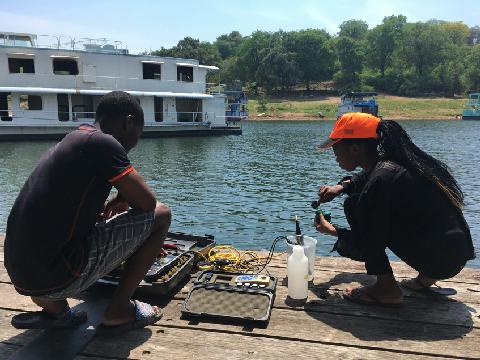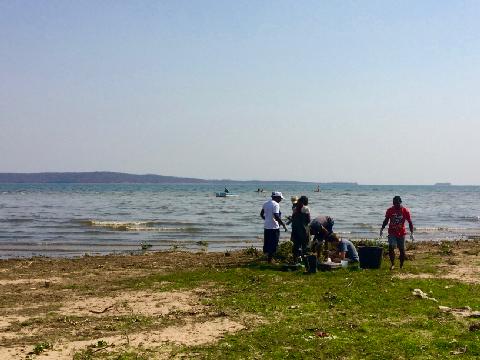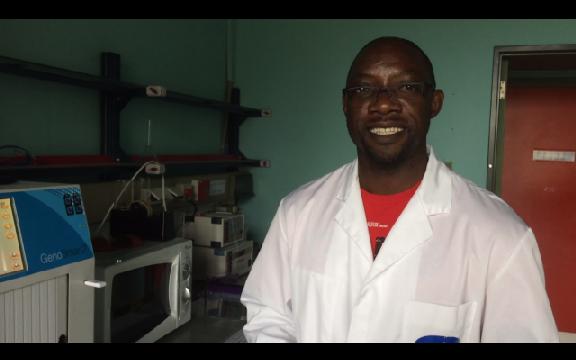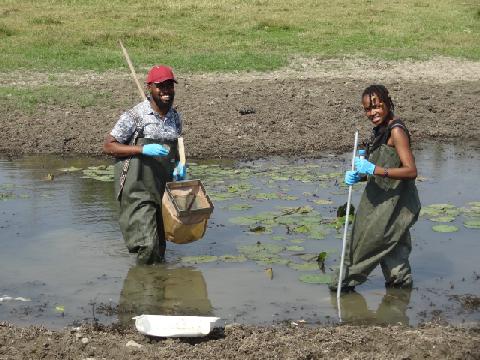Staff directory
Tine Huyse
Invertebrates
Freshwater snails play an important role in the transmission of parasitic diseases, caused by schistosome worms and other trematodes. Snailborne diseases affect more than 300 million people worldwide and form a major health burden to the affected countries. Additionally, they cause important economic losses in the livestock industry and in the fish farming sector in Southern Africa. In this project, we want to study the role of these snail 'vectors' in the transmission of these diseases in Lake Kariba in Zimbabwe, the largest artificial lake in the world.
In order to do so we first need to document and map the presence of the snails that host trematodes in Lake Kariba. This mapping allows us to identify possible transmission hotspots in the area. Snail species are identified using morphological and molecular techniques. They are subsequently tested for infection through microscopic analyses of live snails in the field laboratory. Snails shed parasite larvae (called cercariae) when the infections are mature (patent). Since this technique is labour-intensive and not sufficiently sensitive, we want to develop sensitive molecular techniques to rapidly and reliably identify prepatent parasite infections in freshwater snails. Monitoring snail and parasite prevalence over time will allow us to determine exposure risk. Additionally, this will help understand the factors that drive snailborne diseases, and ultimately help us to control them in the future.
Video: https://vimeo.com/333703665



